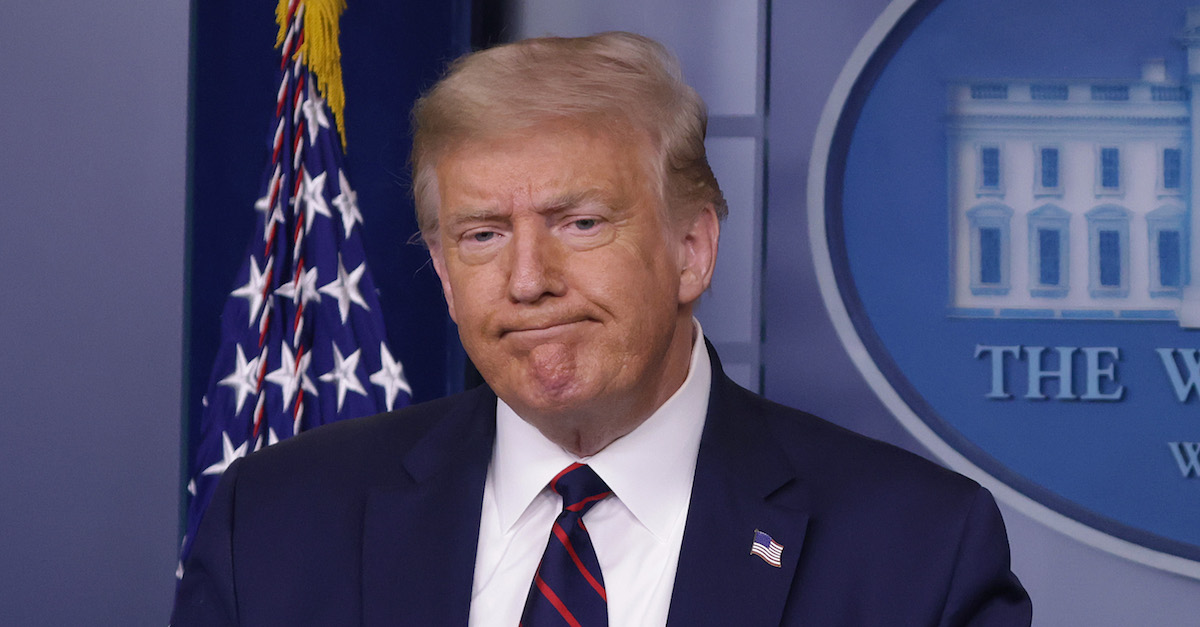
A federal appellate court in New York on Monday said it will not stop litigation claiming that President Donald Trump is in violation of the Emoluments Clause of the U.S. Constitution. The Second Circuit Court of Appeals voted 8-4 not to rehear en banc the court’s ruling from last year, which resurrected the emoluments lawsuit after it had been dismissed by a lower court.
Revealing a stark divide among the jurists, all four of the judges who voted in favor of rehearing the case signed on to one of two dissenting opinions.
Circuit Judge Stephen Menashi, a Trump appointee, penned a dissent that was joined by Circuit Judges Richard Sullivan and Debra Ann Livingston, who were appointed by Trump and George W. Bush, respectively. Menashi argued that the court’s majority ruling was based on the mere assumption that foreign officials were abandoning plaintiffs’ establishments in favor of the president’s businesses, which he concluded was not enough to establish standing.
“[O]ne might think the court would require the plaintiffs to identify some evidence that at least one official has actually chosen a Trump-located restaurant over one of the plaintiffs’ restaurants for an emoluments-based reason,” Menashi wrote. “But the plaintiffs have no such evidence, and the majority opinion does not think it is necessary. Instead, the majority opinion finds the plaintiffs’ theory of injury so clearly compelling as a matter of “economic logic” that the court can dispense with the normal requirement that standing be based on a concrete injury rather than a speculative one.”
According to Menashi, a proper showing of standing should require the plaintiffs to show that they suffered “personal harm,” and were not just suffering from the president having a business “advantage” over their establishments.
The initial lawsuit was filed by government watchdog group Citizens for Responsibility and Ethics in Washington (CREW) and a coalition of high-end hospitality business owners alleging they had been harmed by “foreign and domestic government clientele” funneling profits to the president. A three-judge panel on the Second Circuit revived the claim in Sept. 2019 after U.S. District Judge George B. Daniels dismissed the case. The president’s attorneys petitioned the court to rehear the case before all of the judges on the circuit, a request that was denied on Monday.
The plaintiffs were represented by a slew of high-profile attorneys, including Harvard law professor Laurence Tribe, Supreme Court litigator Deepak Gupta, and former special counsel to the president during the Obama administration Norm Eisen.
In a statement to Law&Crime, CREW communications director Jordan Libowitz praised the court’s decision.
“We’re pleased at the 2nd Circuit’s decision and look forward to continuing this historic case,” Libowitz said.
Read the court’s order and Menashi’s full dissent below:
Menashi Dissent by Law&Crime on Scribd
Second Circuit Decline Emoluments by Law&Crime on Scribd
(Photo by Alex Wong/Getty Images)